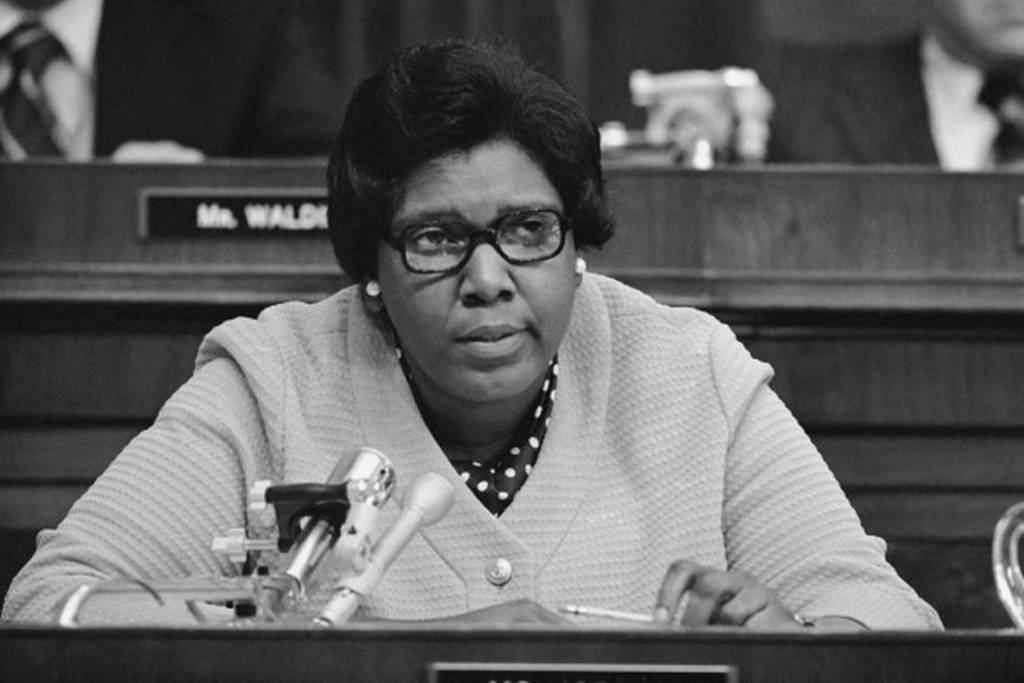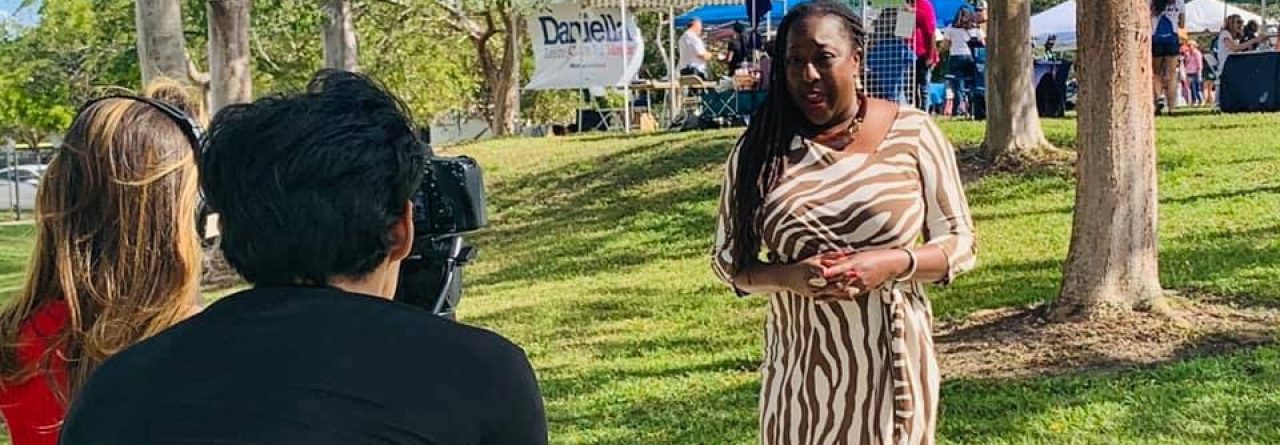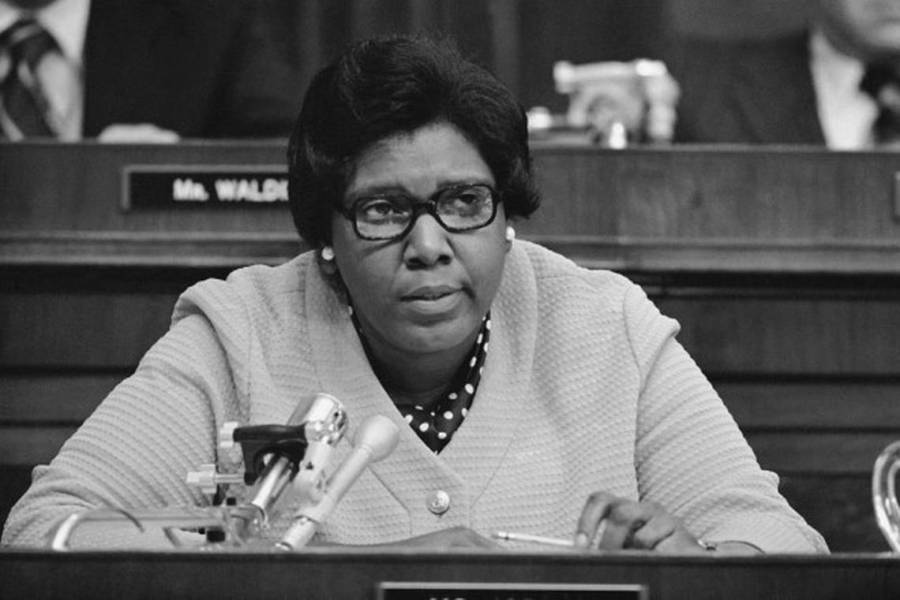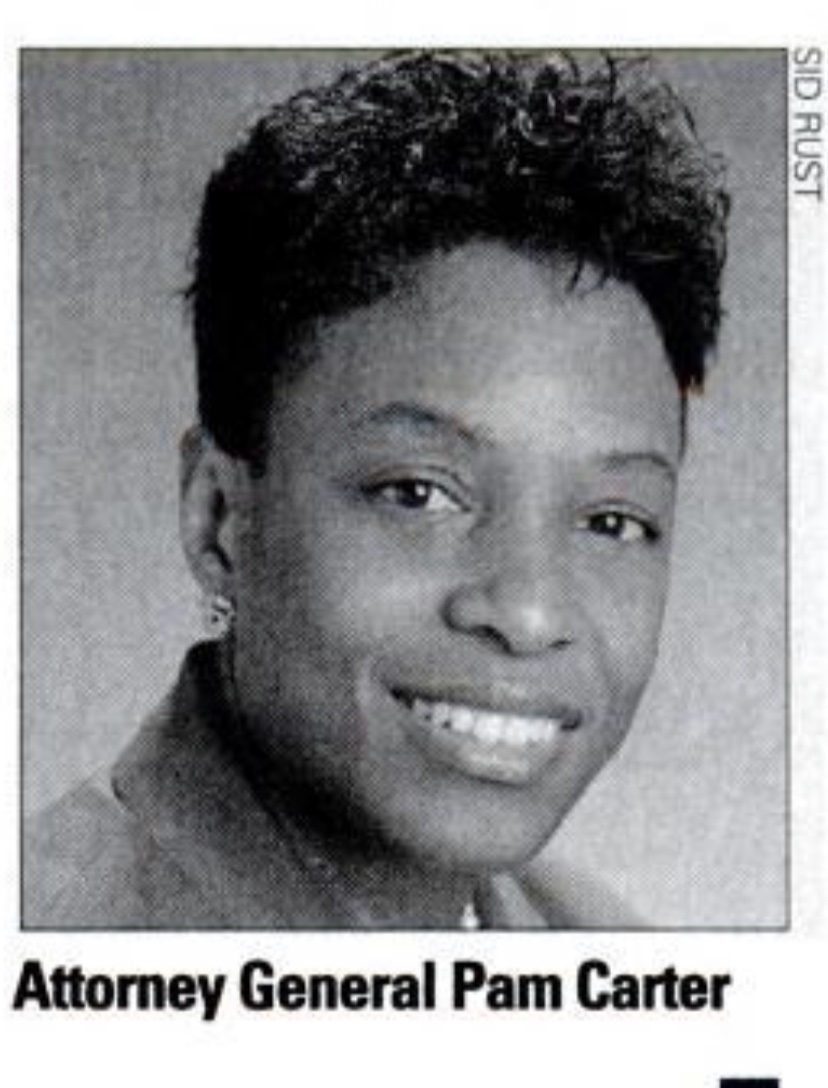Hi RLD Family!
Every year for Black History Month, I highlight trailblazing female attorneys that made it possible for me to do what I do today! This year, my Legal Diva of Color is Representative Barbara Jordan, who made history on a number of levels throughout her career.

Barbara Charline Jordan was born February 21, 1936, in Houston, Texas. Her father was a Baptist minister and warehouse clerk; her mother was a maid, housewife and church teacher. Greatness was pre-ordained in her blood. Rep. Jordan’s great-grandfather, Edward Patton, was one of several Black representatives who served in the Texas legislature during Reconstruction — prior to disenfranchisement of Black Texans under Jim Crow.
Rep. Jordan attended the segregated Phillis Wheatley High School, where a career day speech by Edith Sampson, a Black lawyer, inspired her to become an attorney. Never underestimate the power of career day, and of role models to open the door to new career paths!
Her education continued as a member of the inaugural class at Texas Southern University, an HBCU (historically Black college/university) quickly created by the Texas legislature to avoid having to integrate the University of Texas. While at Texas Southern, Rep. Jordan was part of the debate team, helping them reach national acclaim. The team famously tied Harvard’s debaters when they came to Houston — a huge feat for a fledgling team, while simultaneously challenging the notion of white supremacy. She graduated magna cum laude in 1956, heading then to Boston University School of Law. Three years later, Jordan earned her law degree as one of only two African American women in her class. After passing the bars in Massachusetts and Texas, she decided to come back home to Houston, where she opened a law office.
Her pivot to public service began when Rep. Jordan volunteered for John F. Kennedy’s presidential campaign in 1960. She was a masterful organizer — driving 80% voter turnout in Harris County (which is where Houston is located). In a classic case of “if at first you don’t succeed“, she ran twice for the Texas House. The first two times she lost, but she finally won in 1966 — where she became the senator for a newly formed district. As a state senator, she worked to pass a state minimum wage law that covered farmworkers. Ever the hard worker, she co-sponsored over 70 bills.
After her success as a a state senator, Rep. Jordan ran for Congress as the Democratic nominee for Houston’s 18th District. She won, becoming the first African American woman from a Southern state to serve in the U.S. House of Representatives. She enjoyed a mentor/mentee relationship with Lyndon B. Johnson, which enabled her to be appointed to key posts such as the House Judiciary Committee. Her breakout moment came on July 25, 1974, when Rep. Jordan gave the 15-minute opening statement of the Judiciary Committee’s impeachment hearing for Richard Nixon. Her speech was a staunch defense of the U.S. Constitution and its checks and balances designed to prevent abuse of power. She said, “I am not going to sit here and be an idle spectator to the diminution, the subversion, the destruction of the Constitution.”
She further stated “I felt somehow for many years that George Washington and Alexander Hamilton left me out by mistake. But through the process of amendment, interpretation and court decision, I have finally been included in “we the people””
Rep. Barbara Jordan, 1974
The impeachment speech helped lead to Nixon’s resignation over the Watergate scandal and won Jordan national acclaim for her rhetoric, intellect and integrity. Her speech was so amazing that two years later, she was asked to deliver the keynote address at the 1976 Democratic National Convention— a first for an African American woman! Rep. Jordan was even floated as a potential running mate for Jimmy Carter. She turned that down — but ironically, even though she was not a candidate, one delegate was so moved by her speech that they voted for her to be the Presidential nominee.
When she was not making history, Rep. Jordan was hard at work on legislation promoting women’s rights, supported the Equal Rights Amendment and cosponsored a bill that would have granted housewives Social Security benefits based on their domestic labor. She co-sponsored close to 300 bills, many of which are still law today.
After more than a decade of service, Rep. Jordan retired from Congress in 1979 to become a professor at the Lyndon Baines Johnson School of Public Affairs at the University of Texas. It was a nice full circle moment, being able to teach at the university that she could not attend due to segregation, as well as in the school named after her mentor. She became an active public speaker and advocate, receiving 25 honorary doctorates. Her vehement opposition helped derail George Bush’s nomination of Robert Bork (who had opposed many civil rights cases) to the U.S. Supreme Court. She gave a second Democratic Convention keynote address in 1992. In 1994 then President Bill Clinton awarded her the Presidential Medal of Freedom, the country’s highest civilian honor.
Rep. Jordan died of leukemia-related pneumonia on January 17, 1996 at age 59. Breaking barriers even in death, she became the first African American to be buried among the governors, senators and congressmen in the Texas State Cemetery. Her legacy includes the main terminal of the Austin International Airport bearing her name, along with a statute of her likeness. In 2000, the Jordan/Rustin Coalition (JRC) was created, honoring Rep. Jordan and Bayard Rustin, a leader in the civil rights movement and close confidante of Martin Luther King Jr. The organization’s goal was to mobilize LGBT+ African Americans to aid in the passage of marriage equality in California. Rep. Jordan had a long term companion named Nancy Earl, who was with her until the end of her life. No public statement has ever been made about their relationship, but it is believed they were life partners.
Thank you Rep. Barbara Jordan for being a trailblazer, and a Legal Diva of Color!














